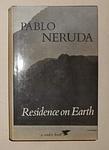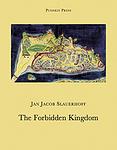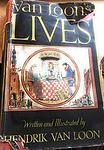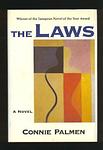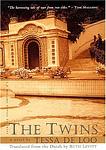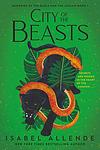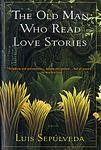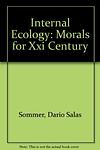The Greatest Dutch, Chilean "Fiction" Books Since 1900
Click to learn how this list is calculated.
This list represents a comprehensive and trusted collection of the greatest books. Developed through a specialized algorithm, it brings together 300 'best of' book lists to form a definitive guide to the world's most acclaimed books. For those interested in how these books are chosen, additional details can be found on the rankings page.
Genres
Countries
Date Range
Reading Statistics
Click the button below to see how many of these books you've read!
Download
If you're interested in downloading this list as a CSV file for use in a spreadsheet application, you can easily do so by clicking the button below. Please note that to ensure a manageable file size and faster download, the CSV will include details for only the first 500 books.
Download-
1. The House of the Spirits by Isabel Allende
"The House of the Spirits" is a multi-generational saga that explores the lives of the Trueba family, set against the backdrop of political upheaval in an unnamed Latin American country. The narrative is driven by the family's strong and magical women, including clairvoyant Clara and her granddaughter Alba. The story spans over three generations, weaving together personal, social, and political threads, and is rich in elements of magical realism. The novel explores themes of love, violence, social class, and the struggle for power.
-
2. The Savage Detectives by Roberto Bolaño
"The Savage Detectives" is a novel that follows the lives of two Latin American poets, Arturo Belano and Ulises Lima, who are founders of a literary movement called "visceral realism." The book is divided into three parts and is narrated by multiple characters, providing different perspectives on the protagonists. The narrative spans over 20 years, following the poets' journey from Mexico City to Europe, Israel, and Africa, as they search for a mysterious poetess and navigate through the world of literature, sex, drugs, and the complexities of life.
-
3. 2666 by Roberto Bolaño
The novel is a sprawling, ambitious work that spans continents and time periods, centering around an elusive, reclusive German author. It intertwines five different narratives: a group of European academics searching for the author, a professor in Mexico dealing with his own personal crises, a New York reporter sent to cover a boxing match in Mexico, an African-American journalist in Detroit, and the horrifying and unsolved murders of hundreds of women in a Mexican border town. The narratives are linked by themes of violence, mystery, and the search for meaning in a chaotic world.
-
4. The Discovery of Heaven by Harry Mulisch
"The Discovery of Heaven" is a philosophical novel that explores the relationship between mankind and the divine. The story revolves around two friends, an astronomer and a philologist, who are manipulated by heavenly forces to father a child who is destined to return the Ten Commandments to God. As the narrative unfolds, it delves into complex themes such as friendship, love, art, science, and the existence of God, presenting a thought-provoking analysis of the human condition.
-
5. Residence on Earth by Pablo Neruda
"Residence on Earth" is a collection of poems that delve into the human condition, exploring themes of love, despair, loneliness, and the search for identity and meaning. The poems are characterized by their deep introspection, vivid imagery, and profound emotional resonance. The author's unique style combines surrealism, historical allusions, and a keen observation of the natural world, resulting in a powerful and evocative exploration of the human experience.
-
6. Of Love and Shadows by Isabel Allende
Set against the backdrop of a South American country under a military dictatorship, this novel follows the story of a woman journalist and her lover, a photographer, who, while working together, uncover a hidden mass grave in a remote part of their country. Their discovery leads them into danger as they try to expose the truth about the brutal regime ruling their country, while also dealing with their own personal issues and their growing love for each other. The story is a blend of romance and political drama, showing the power of love and courage in the face of oppression and fear.
-
7. All Souls' Day by Cees Nooteboom
"All Souls' Day" is a novel about a Dutch documentary filmmaker, who, after losing his wife and daughter in a car accident, moves to Berlin to escape his grief. The protagonist becomes entangled in a series of romantic relationships while struggling to come to terms with his loss. The book blends narrative with philosophical musings on memory, loss, and the nature of time, using the city of Berlin as a backdrop to illustrate the protagonist's internal journey.
-
8. Forever a Stranger by Hella S. Haasse
"Forever a Stranger" is a historical novel set in the 19th-century Dutch East Indies, now known as Indonesia. It tells the story of Rudolf, a half-Dutch, half-Javanese boy, who is raised by his Dutch father after his Javanese mother's death. Throughout his life, Rudolf grapples with his mixed heritage and struggles to find a sense of belonging, experiencing the harsh realities of colonialism and the cultural divide between the Dutch and the Javanese. The narrative provides a critical examination of colonialism and its impact on identity, culture, and society.
-
9. The Forbidden Kingdom by Jan Jacob Slauerhoff
"The Forbidden Kingdom" is a historical fiction novel that intertwines the stories of two men, a 20th century sailor and 16th century Portuguese poet, Luis Camões. The narrative alternates between the two, exploring the sailor's obsession with the poet's life and the poet's experiences in the East, including his journey to Macao. The book delves into themes of identity, obsession, and the clash of Eastern and Western cultures.
-
10. The Garden Where the Brass Band Played by Simon Vestdijk
This novel explores the life of a young boy named Nol Rieske, who falls in love with the daughter of a bandmaster in a small Dutch town. As he grows older, he becomes a successful musician, but his obsession with the bandmaster's daughter, who is mentally ill, continues to dominate his life. The story is a detailed exploration of a man's lifelong infatuation and its profound impact on his personal and professional life.
-
11. Return to Oegstgeest by Jan Wolkers
"Return to Oegstgeest" is a semi-autobiographical narrative that explores the author's childhood and adolescence in the small Dutch town of Oegstgeest during the pre and post-World War II era. The book delves into the author's troubled relationship with his stern, religious parents, his struggles with faith, and his burgeoning artistic and sexual awakening. The narrative is a poignant exploration of memory, family, and the experiences that shape one's identity.
-
12. Old People And The Things That Pass by Louis Couperus
This novel delves into the hidden secrets and unspoken truths of an elderly couple, revealing the profound impact of their concealed affair on their family across generations. As the narrative unfolds, it exposes the complexities of human relationships and the consequences of past actions, illustrating how secrets can ripple through time, affecting not just those who keep them but also their descendants. The story masterfully explores themes of guilt, redemption, and the inescapable nature of the past, all while painting a poignant picture of aging and the inevitable passage of time.
-
13. Rituals by Cees Nooteboom
"Rituals" is a philosophical novel that explores the lives of three men, each dealing with existential crises in post-World War II Netherlands. The narrative delves into their individual searches for meaning and purpose, their struggles with societal norms, and their attempts to establish personal rituals as a way to create order in a seemingly chaotic world. The book is a profound meditation on the human condition, examining themes of time, death, and the nature of reality.
-
14. Smell of Sadness by Alfred Kossmann
"Smell of Sadness" is a poignant narrative that revolves around a man who, after being separated from his wife during the Second World War, embarks on a journey to find her. The story takes us through the protagonist's experiences, his encounters with various people, and his personal struggles. The book is a deep exploration of human emotions, particularly the profound sadness that permeates through the protagonist's life, making it a moving and thought-provoking read.
-
15. Van Loon's Lives by Hendrik Willem van Loon
The book in question is a unique blend of biography, autobiography, and fantasy, where the author imagines inviting historical figures from different eras to dinner at his home. Through a series of lively conversations and interactions, the author and his guests explore the lives and thoughts of these famous individuals, ranging from philosophers and scientists to artists and rulers. The narrative provides a creative and insightful look at history, as well as the author's own musings on life, culture, and human progress, all while blurring the lines between past and present in an engaging and whimsical manner.
-
16. Gimmick! by Joost Zwagerman
"Gimmick!" is a novel that explores the life of a young artist in the Amsterdam art scene during the 1980s. The protagonist is caught in a world of excess, parties, drugs, sex, and betrayal while trying to find his place and make a name for himself. The story delves into the struggles of artistic life, the lure of fame and the pitfalls of success, providing a raw and gritty depiction of the times.
-
17. La Brecha by Mercedes Valdivieso
"La Brecha" is a groundbreaking Chilean novel that delves into the life of a middle-class woman who, after years of conforming to traditional gender roles and a subservient position within her marriage, begins to question the societal norms that have long dictated her existence. As she becomes increasingly aware of the oppressive structures surrounding her, she embarks on a journey of self-discovery and liberation. The novel explores themes of feminism, identity, and personal freedom, challenging the status quo of the time and advocating for the empowerment of women to break free from the constraints imposed by a patriarchal society.
-
18. New Islands And Other Stories by María Luisa Bombal
"New Islands and Other Stories" is a collection of evocative short stories that delve into the lives of women, exploring themes of love, isolation, and the search for identity against the backdrop of the lush South American landscape. The narratives often blend reality with fantasy, creating a dreamlike atmosphere that reflects the inner turmoil and desires of the protagonists. Through her lyrical prose, the author examines the complex emotional landscapes of her characters, revealing the ways in which they navigate the constraints of their societal roles and personal relationships. The stories are a testament to the struggles and resilience of women, and a portrayal of the transformative power of the imagination.
-
19. The Laws by Connie Palmen
"The Laws" is a philosophical novel that follows the life of a young woman studying philosophy who becomes intrigued by the concept of laws, both societal and personal. Over the course of seven years, she engages in relationships with seven different men, each representing a different aspect of her studies including a priest, a physicist, an artist, a psychiatrist, a lawyer, a biologist, and a writer. Each relationship provides a new perspective on her quest to understand the laws of the universe and human nature.
-
20. The Twins by Tessa De Loo
"The Twins" is a poignant narrative about twin sisters, separated at a young age due to the Second World War. One sister grows up in the Netherlands under Nazi occupation, while the other is raised in Germany as part of the Hitler Youth. After six decades of separation, they meet again and begin to share their experiences, discovering the impact of the war on their lives and the stark differences in their upbringing. The book explores themes of identity, loyalty, and the long-lasting effects of war on individuals and families.
-
21. City of the Beasts by Isabel Allende
A 15-year-old boy is forced to move in with his eccentric grandmother after his mother falls ill. Together, they embark on a journey to the Amazon rainforest in search of a legendary, healing beast. Along the way, they encounter various challenges, including dangerous animals, harsh environments, and a group of indigenous people with mystical powers. The boy learns to overcome his fears and prejudices, forming a strong bond with the indigenous people and the rainforest itself.
-
22. Abessijnse Kronieken by Moses Isegawa
"Abessijnse Kronieken" is a powerful and captivating novel set in Uganda during the tumultuous era of Idi Amin's dictatorship. The story follows the life of Mugezi, a young man navigating through the complexities of love, family, and political upheaval. With richly drawn characters and vivid descriptions, the book explores themes of identity, cultural clash, and the struggle for freedom in a country torn apart by corruption and violence.
-
23. The Old Man Who Read Love Stories by Luis Sepúlveda
The book tells the story of an elderly man who, having settled in a remote Amazonian village, develops a passion for reading romance novels to escape the monotony of his daily life. His peaceful existence is disrupted when he is called upon to track down an ocelot that has been killing the local villagers' animals. As he ventures into the jungle, his journey becomes both a physical and emotional adventure, intertwining his love of literature with his deep respect for nature, and ultimately leading him to confront not only the wild cat but also the complexities of human nature and love.
-
24. Internal Ecology Morals For Xxi Century by Dario Salas Sommer
This book delves into the intricate relationship between individual moral development and the broader ecological balance of our planet, proposing that the environmental crises of the 21st century are deeply intertwined with the moral and ethical decay observed in contemporary society. The author argues that by fostering a deeper understanding of our internal ecology—our thoughts, emotions, and spiritual well-being—we can cultivate a more harmonious relationship with the external world. Through a blend of philosophical insight and practical guidance, the text invites readers to embark on a journey of personal transformation as a foundational step towards addressing the global environmental challenges of our time, emphasizing the critical role of individual responsibility and ethical conduct in shaping a sustainable future.
-
25. Dancing In The Dark by Caryl Phillips
"Dancing in the Dark" delves into the complex life and career of Bert Williams, a pioneering black entertainer in early 20th-century America. The novel explores Williams' struggles with his racial identity and the societal pressures that come with it, as he performs in blackface to gain acceptance and success in the predominantly white entertainment industry. Through a poignant narrative, the book examines themes of race, performance, and the personal costs of compromise in a society divided by color lines, revealing the emotional and psychological toll of Williams' choices on his personal and professional life.
Reading Statistics
Click the button below to see how many of these books you've read!
Download
If you're interested in downloading this list as a CSV file for use in a spreadsheet application, you can easily do so by clicking the button below. Please note that to ensure a manageable file size and faster download, the CSV will include details for only the first 500 books.
Download



